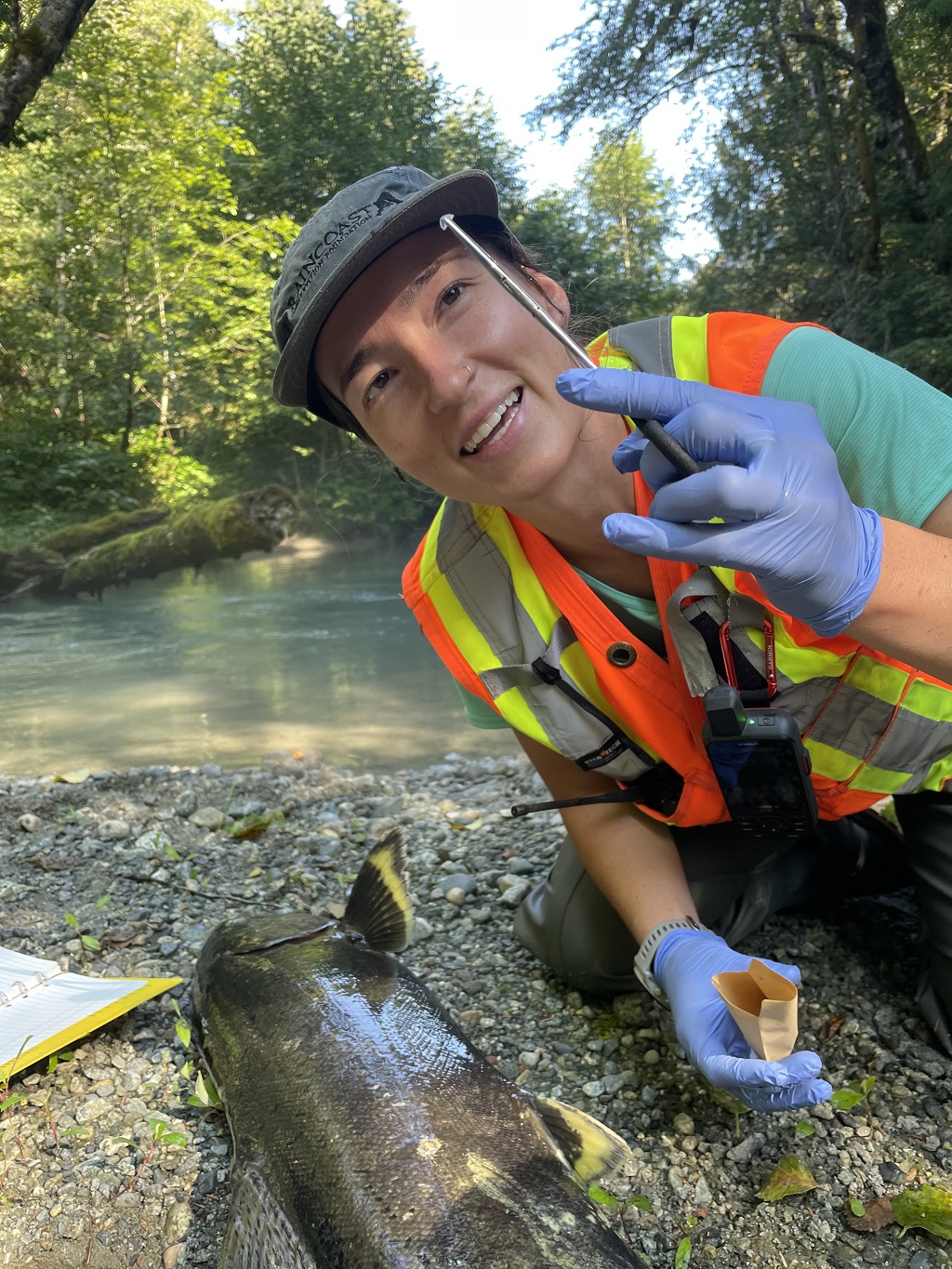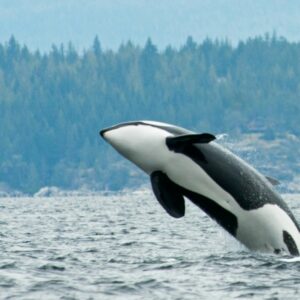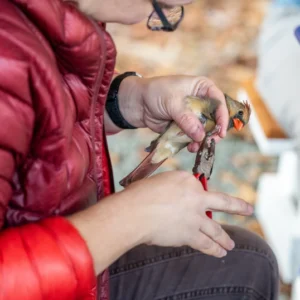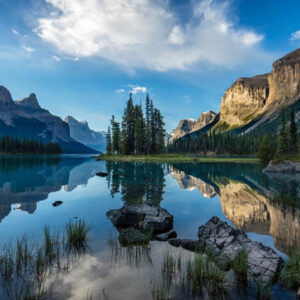Nature Network Showcase: Raincoast Conservation Foundation — Advocating for Wild Salmon and Killer Whale Conservation Measures
Raincoast Conservation Foundation (Raincoast) is a team of conservationists and scientists empowered by research to protect the lands, waters, and wildlife of coastal British Columbia. We use rigorous, peer-reviewed science and community engagement to further our conservation objectives. We call this approach informed advocacy. As a charitable, non-profit conservation science organization that operates a research lab at the University of Victoria, a land trust, a conservation genetics lab, and a research/sailing vessel, we are unique in Canada.
Our organizational mandate is Investigate. Inform. Inspire. We investigate to understand coastal species and processes; we inform by bringing science to decision makers and communities; and we inspire action to protect wildlife and their habitats.
Kristen Walters, M.Sc, Director of the Fraser River Salmon Conservation Program, will be attending Nature on the Hill on behalf of Raincoast Conservation Foundation. This will be the second year Kristen has participated in the Nature on the Hill. Last year, Kristen met with Members of Parliament from British Columbia and called on the government to reject the megaport expansion project, Roberts Bank Terminal 2. Roberts Bank Terminal 2 will have significant adverse effects on endangered Southern Resident killer whales due to impacts to Chinook salmon prey availability, underwater noise, and potential ship strikes.
This year, Raincoast will be one of the many conservation groups advocating for the implementation of biodiversity accountability legislation, which will enact the federal 2030 National Biodiversity Strategy into law. This law would ensure that the government achieves the goals of halting and reversing biodiversity loss, and protecting 30% of lands and waters by 2030, as outlined in the Kunming-Montreal Global Biodiversity Framework.
In Ottawa, Kristen will also focus on advocating for place-based issues in British Columbia, such as threats facing endangered Southern Resident killer whales and at-risk Pacific salmon populations.
Raincoast’s goals for Nature on the Hill
Legislation of a mandatory 1,000-meter vessel buffer zone for Southern Resident killer whales
Underwater noise and physical disturbance from vessels affects the ability of Southern Resident killer whales to communicate successfully and forage efficiently. Southern Resident killer whales can lose more than 50% of their echolocation range when foraging near commercial shipping traffic. Increased shipping traffic from container expansions at Roberts Bank, and oil tankers for Trans Mountain terminal, will make it harder for these whales to catch salmon.
Recently, Washington State (U.S.), passed legislation (Senate Bill 5371) that establishes a mandatory 1,000-yard buffer for recreational and commercial whale watching vessels around Southern Resident killer whales. The law comes into effect in January, 2025, and will reduce the effects of vessel noise and disturbance on these whales.
Sign our petition here to urge the federal government to implement matching 1,000-meter buffer zones for vessels! This will reduce the negative impacts of underwater noise on nutritionally stressed Southern Resident killer whales. This is a legally binding petition, which means that if we surpass 500 signatures by April 21st, the petition will be presented to Minister Diane Lebouthillier in the House of Commons.
Renewal of the Pacific Salmon Strategy Initiative
Raincoast strongly supports the renewal of the Pacific Salmon Strategy Initiative (PSSI). The PSSI was established in 2021, and was a once-in-a-generation $647 million investment in salmon recovery. It was intended to be a 15-year initiative spanning over three salmon generations; however, the federal government has indicated it will soon expire. This initiative has funded new salmon stewardship projects, hatchery reform, harvest transformation, and reduced silos between government departments. A renewal of the PSSI would ensure ongoing investment in salmon recovery through the next election cycle.
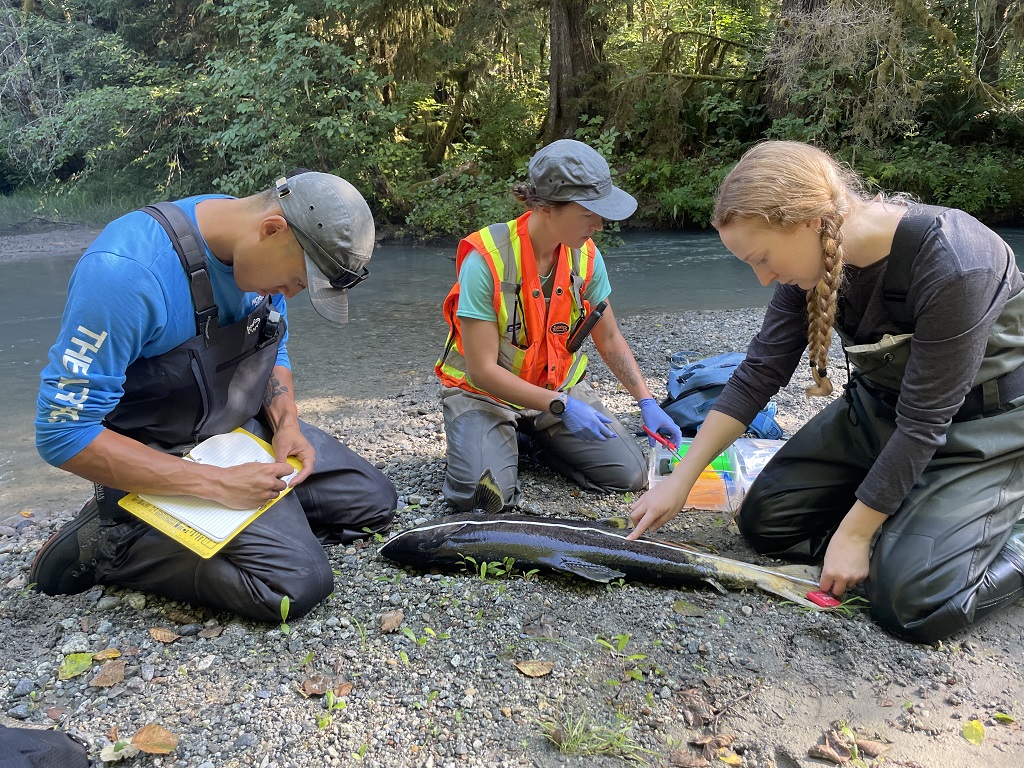
Open-net pen aquaculture in British Columbia
On the coast of British Columbia, 85 aquaculture licenses that allow salmon farming in open-net pens are due to expire on June 30th. Removing open-net pens has been decades in the making – and over 10 years of peer-reviewed science has identified numerous risks posed by open-net pen salmon farms to wild Pacific salmon through the transfer of harmful parasites and pathogens.
However, of these 85 licenses, 66 are seeking a 6-year renewal. Raincoast does not support the government’s consideration of up to a 6-year license renewal for fish farms. We hope this government will deny these renewals and re-commit itself to the promise of a 2025 Aquaculture Transition plan. British Columbia is already experiencing significant declines in wild salmon populations, and as such, a transition away from open-net pen aquaculture is a critical step in advancing the recovery of wild salmon populations.
YOU CAN HELP!
You can help Nature Canada and our Nature Network partners like Raincoast Conservation Foundation who are going to Nature on the Hill to halt and reverse nature loss. Please send a letter to your MP calling for:
- A strong National Biodiversity Strategy that is enforceable, equitable, and fully-funded.
- A Nature Accountability Act to ensure that the Strategy goals are met.

